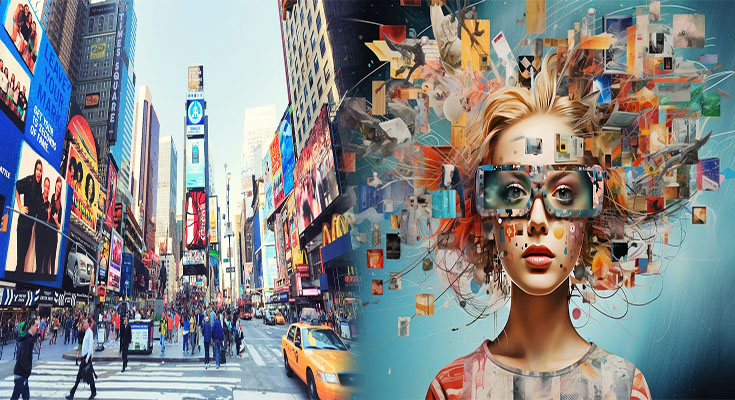The field of psychology is a powerful tool for understanding consumer decision-making. However, it can be hard to see how behavioral economics fits into the picture. You may have heard people talk about “marketing to our lizard brains” or seen articles that talk about why marketing works so well on us. The idea that we have big emotional brains and little rational ones is nothing new, but what does it mean for marketers?
Psychology can play a huge role in marketing strategies.
Psychology can play a huge role in marketing strategies. Psychology can help you understand how people make decisions, choices and decisions about products and services. It also helps you understand how they make the decision to buy or not buy your brand.
Psychology is the study of human behavior, including thinking processes, emotion, learning and memory; motivation; personality traits such as attitudes; social interactions with others (such as family members) or groups (such as clubs)
People make decisions based on how they feel.
The way you feel about a product, service or brand can be a powerful factor in the decision-making process. Feelings are important because they are personal–they reflect how you view something. Your feelings may be positive or negative, rational or irrational–but either way they influence your decisions.
Feelings change over time as people learn more about products and services; when this happens it’s called “experiential learning.” A good example of experiential learning is when people first try a new food (like sushi) and then decide whether they like it based on their current feelings toward sushi in general.
People want to be happy.
People want to feel good.
They want to feel in control of their lives.
They want to feel connected to others.
They want to feel safe and secure.
They want confidence that things will work out the way they’re supposed to, without too much effort on their part or risk of failure (unless it’s something exciting).
And finally, people need respect: respect for who they are as individuals; respect for their time and attention; respect from those around them that says “you matter.”
People tend to prefer things that are familiar.
People tend to prefer things that are familiar.
- People prefer things that are similar to what they already have.
- An example of this is the tendency for people who drink wine and beer to also smoke cigarettes, even though neither alcohol nor tobacco is known for being a cause of lung cancer (in fact, some studies suggest that moderate drinking can reduce your risk). This phenomenon has been dubbed “the association rule” by psychologists and sociologists, who believe it has its roots in evolution: when we experience something pleasant or unpleasant in our environment, we form an association between that event and all future instances of similar events (such as eating ice cream on hot days). Because these connections are made subconsciously–we aren’t consciously aware of why we like something–they’re difficult if not impossible to break once formed!
People don’t always act rationally.
People don’t always act rationally. This is a fact that marketers have known for decades, but it’s still surprising how much influence emotions and past experience have on our purchasing decisions.
Here are some ways that irrationality affects consumer behavior:
- People copy each other’s behavior–whether it’s good or bad. For example, when someone buys a new car, their friends are more likely to buy the same one too. Or if your friend has been using a certain brand of toothpaste for years without any problems, you may be more likely to use that brand yourself rather than trying something new (even if there’s evidence showing your friend might not be getting their money’s worth).
- Our brains are hardwired by evolution to avoid risk where possible–and supermarkets full of identical products make us feel safe and comfortable! We’ll stick with what we know rather than taking chances on something new or unfamiliar even though there might be better options available elsewhere on the market today; these kinds of behaviors make sense from an evolutionary standpoint since previous generations didn’t have access to anything resembling modern supermarkets so having only one option made sense back then because nothing else existed yet either! However today we live in times where choice has never been greater…
Behavioral Economics is a powerful tool for understanding consumer decision-making, but it’s not clear-cut.
Behavioral economics is a powerful tool for understanding consumer decision-making, but it’s not clear-cut.
People are not always rational and they don’t always act in their own best interests. They make decisions based on how they feel, so marketers must understand what emotions drive people to purchase products or services. People prefer things that are familiar, which means that brands need to create positive associations with their products through advertising over time if they want loyal customers who will keep coming back for more. Lastly, people want happiness–and marketers have discovered that one way of making consumers happy is by giving them an experience (e.g., going on vacation) rather than just selling them something as simple as a pair of jeans (which isn’t fun).
You can’t just use behavioral economics to predict what people will do. You also have to understand their motivations and goals, which are often not rational. These insights can help you create better ads that resonate with your audience and persuade them to buy your product or service.





